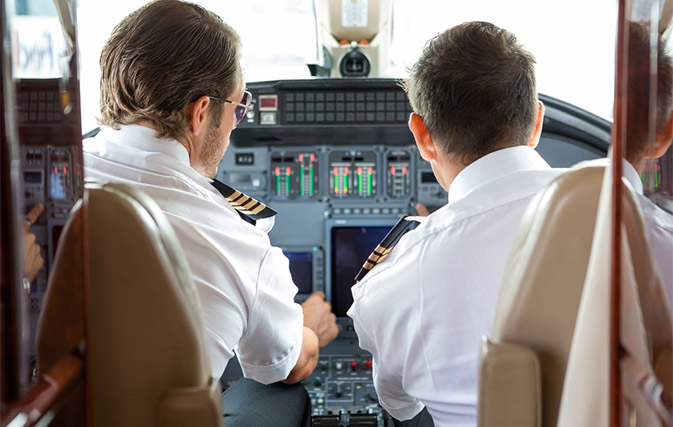TORONTO — Pilots aren’t known to be particularly chatty – for good reason. There’s an actual rule in place that prohibits them from chatting up a storm, which is a very good thing considering how they’re responsible for every life onboard.
Called the Sterile Cockpit Rule, it’s meant to limit any and all unnecessary chatter and procedures below 10,000 feet. Why? Because in September 1974, Eastern Air Lines Flight 212 en route from Charleston crashed before landing at Charlotte Douglass International Airport, immediately killing 69 of the 82 passengers onboard, including Dr. James Colbert, the father of late-night talk show host Stephen Colbert. Three other passengers succumbed to their injuries following the crash.
According to The Telegraph, the National Transportation Safety Board (NTSB) later found that the captain and first officer had engaged in “non-pertinent” conversation, which resulted in distracting them from properly checking their instruments prior to landing.
This prompted the Federal Aviation Administration to introduce the Sterile Cockpit Rule seven years later. All airlines are required to enforce the rule, which forbids “any duties during a critical phase of flight except those duties required for the safe operation of the aircraft.”
But the rule isn’t limited to just the cockpit; it extends to all flight crew members, preventing them from “eating meals, engaging in nonessential conversations…and nonessentials communications between the cabin and cockpit crews, and reading publications not related to the proper conduct of the flight.”
It further states: “Sterile flight deck procedures are meant to increase the flight crew members’ attention to their essential operational activities when their focused alert is needed, i.e. during critical phases of flight (take-off and landing, etc.), during taxiing and below 10,000 feet (except for cruise flight).”
However, the Sterile Cockpit Rule is not without some controversy. In 1995, reports The Telegraph, a flight attendant stayed silent when a passenger door seal separated just after take-off.
To avoid any future confusion or mishaps, Japan Airlines has clearly listed the possible emergencies onboard that would warrant flight crew to break their silence. These include fire, smoke in the cabin, abnormal noise or vibration and visible fuel or other leakages.

